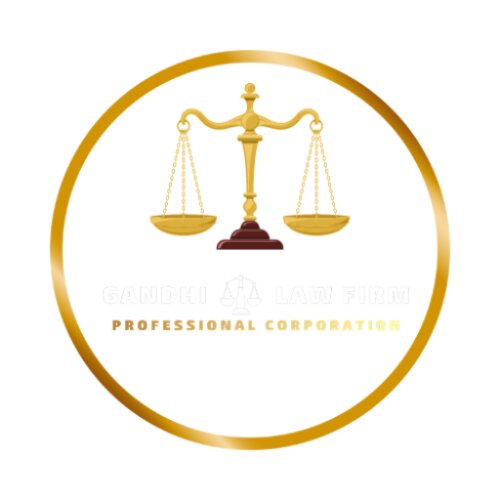Best Father's Rights Lawyers in Toronto
Share your needs with us, get contacted by law firms.
Free. Takes 2 min.
Free Guide to Hiring a Family Lawyer
List of the best lawyers in Toronto, Canada
About Father's Rights Law in Toronto, Canada:
Father's Rights Law in Toronto revolves around the principle that fathers and mothers should be treated equally in matters pertaining to child custody and support, regardless of the marital status of the parents. It recognizes fathers as important figures in the lives of their children, and their right to maintain a meaningful relationship with them. Whether it's about gaining custody, establishing visitation rights, or dealing with child support issues, the laws aim to protect and uphold the rights of the father.
Why You May Need a Lawyer:
Understandably, legal matters concerning family law can be intricate, and emotions may run high, particularly when issues of child custody, support, and access are involved. Thus, seeking legal assistance can be beneficial to navigate the complexities of the legal system. A lawyer can help you understand your rights and responsibilities, represent you in court, mediate negotiations, and strive to ensure that the best interests of both you and your child are taken into account.
Local Laws Overview:
In Toronto, the key laws relevant to Father's Rights fall under the broad scope of the Family Law Act and the Divorce Act. They specify that decisions about child custody and access should be made in the child’s best interests. The court gives no preference to mothers over fathers, and it doesn't consider parent's past conduct unless it's relevant to their ability to act as a parent. It also expects both parents to financially support their children in accordance with each parent's income. Child custody and access are granted based on a child's needs and the parent's ability to meet those needs.
Frequently Asked Questions:
1. Can a father get full custody of his child in Toronto?
Yes, following the best interests of the child, a father can potentially gain full custody. However, the court always prioritizes the child’s well-being and needs over parental rights.
2. What are a father’s rights if he is not married to the child’s mother?
A father's rights do not change based on marital status. As long as paternity is established, the father has the same rights and responsibilities concerning custody, access, and child support.
3. Does the mother always get custody in Toronto?
No, the court does not automatically favor the mother. The decision is based on the child’s best interests without any bias towards either parent.
4. What factors determine the custody of the child?
These factors include the child’s emotional ties, each parent's caregiving history, the plans for the child’s upbringing, and the parent's stability, among others.
5. How is child support calculated?
Child support is determined by the Federal Child Support Guidelines. The factors include the number of children, custodial arrangement, and parents' incomes.
6. Can a father refuse visitation rights?
A father has a right to refuse visitation, but only if it's agreed upon between the parents or ordered by the court. Failing to comply with court-ordered visits can have legal consequences.
7. Can custody and support agreements be modified?
Yes, they can be modified through the court if there are significant changes in circumstances, like changes in income, relocation, change in the child’s needs and more.
8. Is joint custody possible?
Yes, joint custody is possible where both parents have a role in important decisions concerning the child's life.
9. How long does child support last?
Child support typically lasts until the child turns 18. But in cases where the child is still in school or is disabled, it could continue beyond this age.
10. Can a father prevent the child’s relocation?
If a parent with shared custody plans to relocate, they must get the court's permission. The father has a right to contest this if they believe it will impact the child's well-being.
Additional Resources:
The Family Law Information Centre (FLIC) is an invaluable resource where you can get free information about family law issues. The Ontario Court’s Form Wizard is a tool that helps create court forms for family cases.
Next Steps:
If you find yourself in a situation where you believe your rights as a father are being compromised, the first step is to consult with a family lawyer. Understand your rights, responsibilities, and the procedures involved in family law cases. Lastly, ensure you have all necessary documentation ready as they can significantly support your case when presented in court.
Lawzana helps you find the best lawyers and law firms in Toronto through a curated and pre-screened list of qualified legal professionals. Our platform offers rankings and detailed profiles of attorneys and law firms, allowing you to compare based on practice areas, including Father's Rights, experience, and client feedback.
Each profile includes a description of the firm's areas of practice, client reviews, team members and partners, year of establishment, spoken languages, office locations, contact information, social media presence, and any published articles or resources. Most firms on our platform speak English and are experienced in both local and international legal matters.
Get a quote from top-rated law firms in Toronto, Canada — quickly, securely, and without unnecessary hassle.
Disclaimer:
The information provided on this page is for general informational purposes only and does not constitute legal advice. While we strive to ensure the accuracy and relevance of the content, legal information may change over time, and interpretations of the law can vary. You should always consult with a qualified legal professional for advice specific to your situation.
We disclaim all liability for actions taken or not taken based on the content of this page. If you believe any information is incorrect or outdated, please contact us, and we will review and update it where appropriate.
















